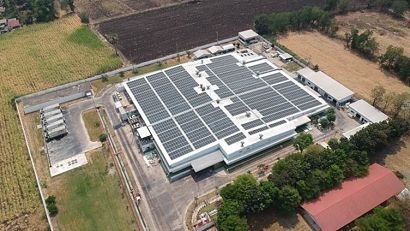
The solar power plants have a combined generating capacity of 2.4 MW and are located in different locations in Lopburi, Korat and Phetchaburi.
The four operating sites are expected to generate over 3,000 MWh of clean electricity in a year which is equivalent to reducing 1,750 tonnes of CO2, representing perceptible efforts by Cargill to cut down greenhouse gas emissions from its operations globally.
Southeast Asia’s growth in electricity demand has been one of the fastest in the world and there is substantial potential for the adoption of renewable energy in the region. To meet the rising electricity demand with affordable, reliable and sustainable sources, Thailand has set a target to increase the use of renewables to 30 percent of the country’s overall energy consumption by 2036. The new sites will add on to Cleantech Solar’s portfolio of operating solar power plants in Thailand, which have since generated over 35 GWh of clean electricity, enough to power 17,500 Thai households per year.
Cargill’s move to adopt solar in Thailand is in line with its science-based global commitment to reduce Scope 1 and 2 greenhouse emissions by 10 percent by 2025, measured against a 2017 baseline.
“Cargill supports global actions to mitigate climate change by constantly pursuing emission-reducing technologies to minimise carbon footprint" said Watcharapon Prasopkiatpoka, Cargill’s Country Representative for Thailand. "Cleantech Solar has proven its capabilities in its field to power its customer’s operations with full turnkey renewable and reliable solar solutions. We are pleased with the project’s success and its contributions to Cargill’s global sustainability targets.”
Raju Shukla, Cleantech Solar Founder and Executive Chairman, added that on top of the benefits to Cargill’s operations and the environment, they will also provide economic benefits in the form of cheaper-than-grid electricity.
For additional information:

